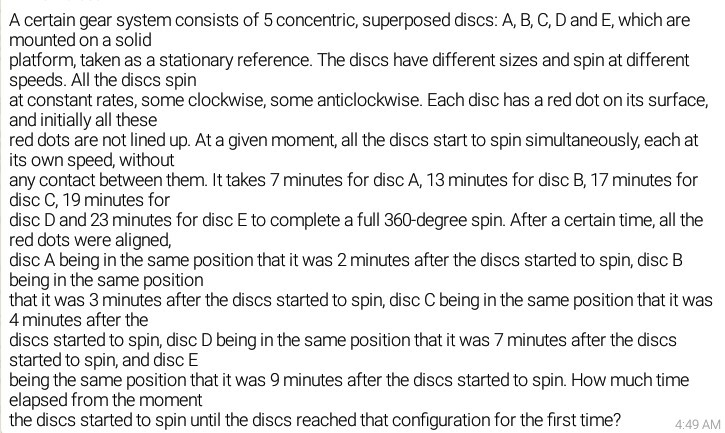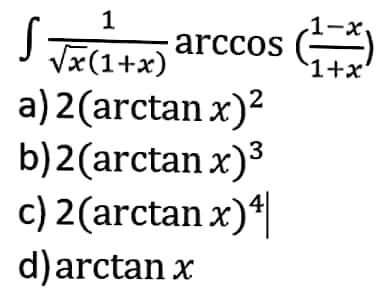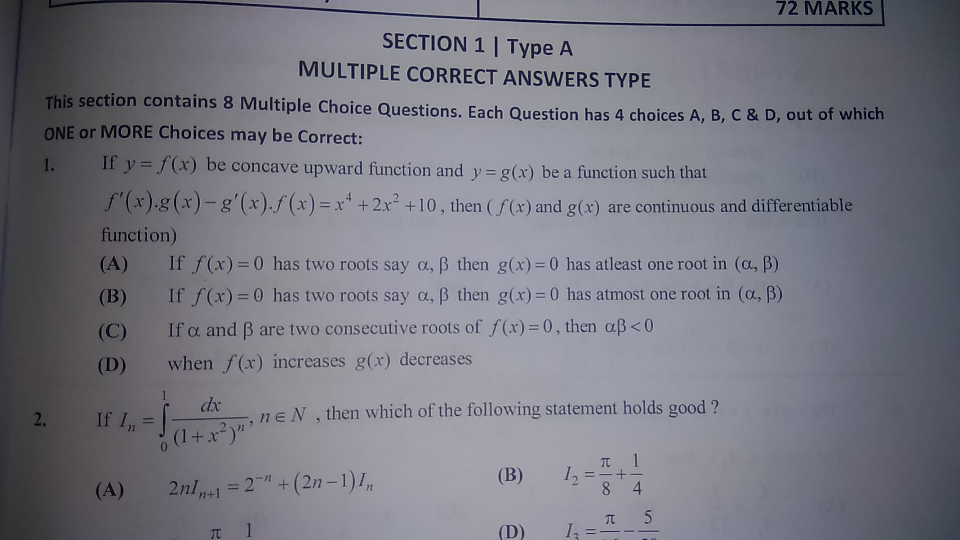
Question and Answers Forum
AllQuestion and Answers: Page 1452















Pg 1447 Pg 1448 Pg 1449 Pg 1450 Pg 1451 Pg 1452 Pg 1453 Pg 1454 Pg 1455 Pg 1456
|
Question and Answers Forum |
AllQuestion and Answers: Page 1452 |

|

|

|

|

|
| If a sum of money doubles itself in a time T, when compounded continuously, find the rate of interest, in terms of T. |
| the function is considered f(x,y)=e^(xy) +(x/y)+sen((2x+3y)π) Calcule: (∂f/∂x),(∂f/∂y),(∂^2 f/∂x^2 ),(∂^2 f/(∂x∂y)). f_x (0,1),f_y (2,−1), f_(xx) (0,1),f_(xy) (2,−1) |

|
| let z ∈C and ∣z∣<1 find f(x)=∫_0 ^1 ln(1+zx)dx. |

|

|

|
| Sum the series: ^n C_0 ^n C_1 + ^n C_1 ^n C_2 + ^n C_2 ^n C_3 + ... + ^n C_r ^n C_(r + 1) |

|
| lim_(x→0) [(x^2 /(tanxsinx))] [.]=grestest integer function |
| n ∈ Z^+ , Find the coefficient of x^(−1) in the expansion of (1 + x)^n (1 + (1/x))^n |
| I am very sorry mr W sir for taking your valuable time thank you very much i got my mistake. I will work on my basics thank you and I am very sorry. |
| lim_(x→0) ((sin(πcos^2 x))/x^2 ) why it can not be solved this way lim_(x→0) ((sin(πcos^2 x))/x^2 ) =lim_(x→0) ((sin(πcos^2 x))/(πcos^2 x))×lim_(x→0) ((πcos^2 x)/x^2 ) =π × lim_(x→0) ((cos^2 x)/x^2 ) but it is not equal to π |
| ∫e^(coth^(−1) (x)) dx |

|

|

|

|

|
| 15,25,42,...? |
| find I_n = ∫ x^n arctan(x)dx with n integr natural. |
Pg 1447 Pg 1448 Pg 1449 Pg 1450 Pg 1451 Pg 1452 Pg 1453 Pg 1454 Pg 1455 Pg 1456 |